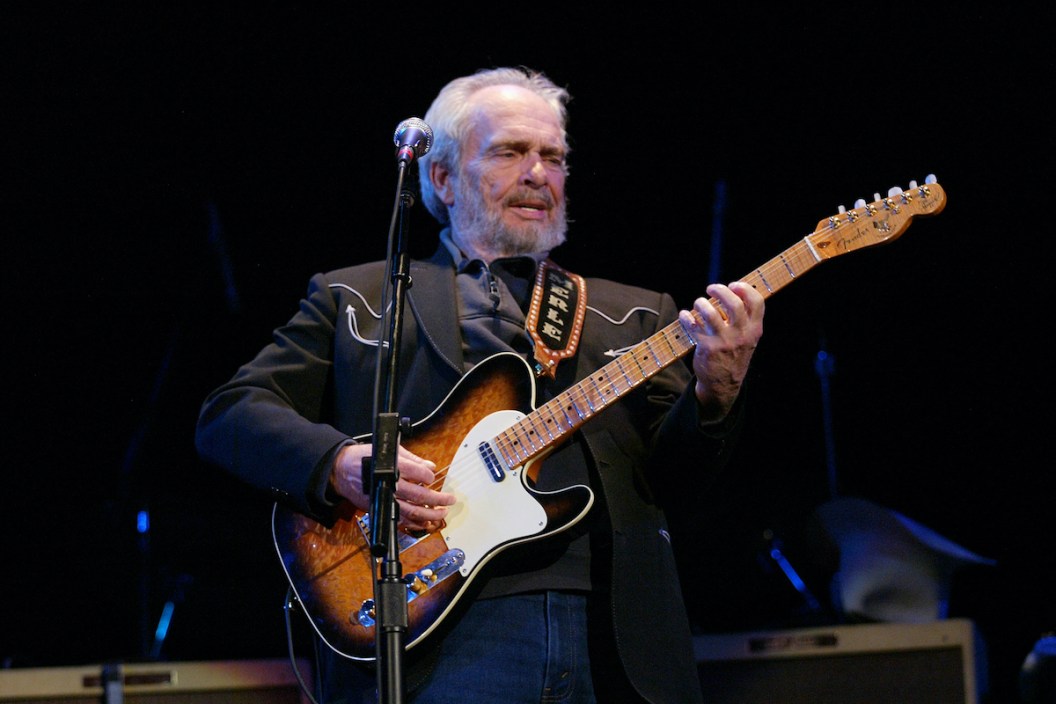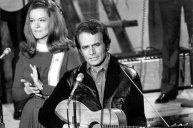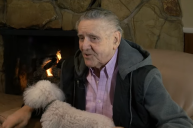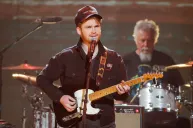Elements of Merle Haggard's life and lyrics get examined in two fresh additions to your country music reading list: a new biography spanning a transformative singer-songwriter's trek from prison to the penthouse and a revised critique of Haggard's recordings.
Videos by Wide Open Country
Do note that these books get covered together simply because they're about Haggard and their release dates fell within four months of each other. There's zero intention to unfairly compare or conflate two manuscripts written for different purposes.
Instead, what follows sums up why both authors devoted an entire book to Haggard and what each project can teach us about a pivotal figure in popular music history.
The Hag: The Life, Times and Music of Merle Haggard
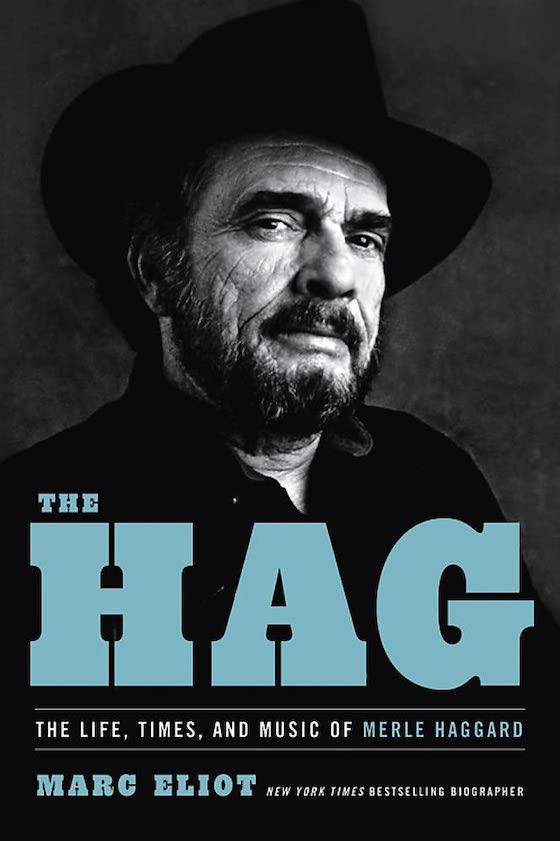
Hachette Books
Marc Eliot, a New York Times best-selling author and biographer of Cary Grant, Clint Eastwood and the Eagles, tackles the musical career and personal ups and downs of a once-in-a-generation storyteller in The Hag: The Life, Times and Music of Merle Haggard (released Jan. 18 by Hachette Books).
One common thread throughout Eliot's text exalts Haggard as a literary genius and foundational songwriting talent— or, as the author calls Haggard hero Jimmie Rodgers, "Stephen Foster with a record deal."
"He was a poet I think of the first rank, and if he had not been a musician or a singer, I think he would've been recognized as one of the great poets," Eliot told Wide Open Country. "The only one I can think of who was a musician and acknowledged generally as a great poet was Bob Dylan, and I think in his own way, Merle was just as great. Dylan used a lot of metaphors and mysticism and misdirection in his songs, very playful. Merle was right in your face with his lyrics. There was nothing hidden, very few if any metaphors. And yet his ability to line up his arrows and his bullseyes was uncanny."
Amid the themes you'd expect— Haggard's role in the spread of the Bakersfield Sound, his time served in San Quentin and his musical chemistry with Bonnie Owens and The Strangers, to name three—there's memorable anecdotes about The Hag bonding with Barack Obama and having no time for Richard Nixon or Burt Reynolds.
"Merle's story is titanic," Eliot said. "It needs the kind of room that I think I've given it. It needs to be told. It's a true American saga. If you take it and you screw it up and you write it like a glossy 8x10, it's a disservice to Merle. He was an American entertainer of the first rank, and he was a complex guy with ups and downs, imperfections, all of it. To understand how great he was, you need to understand what his life was really all about."
The Running Kind: Listening to Merle Haggard
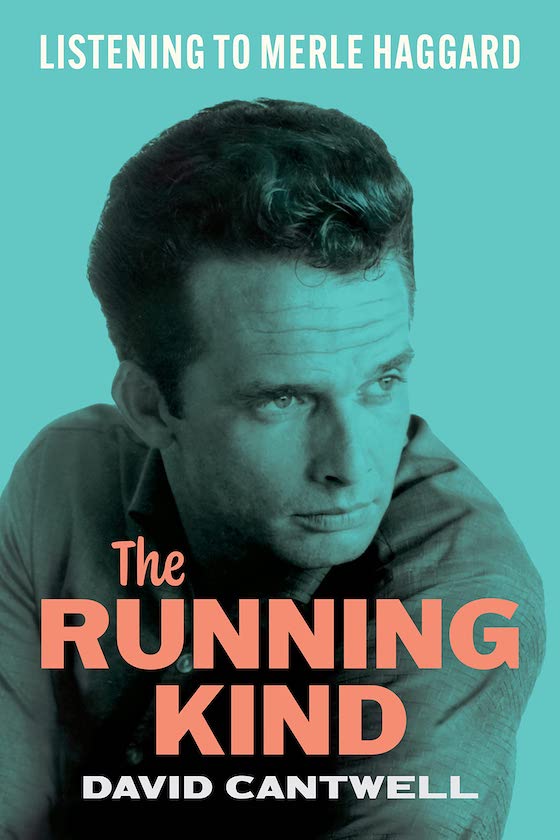
U. of Texas Press
Author and journalist David Cantwell adds to the critical discourse on The Hag with the May 10 release of The Running Kind: Listening to Merle Haggard (U. of Texas Press). It expands the original 2013 edition of The Running Kind with new chapters plus considerable additions to previously included text.
Several years back, Cantwell began reaching out to his editor sporadically to gauge interest in a revised version of The Running Kind. Haggard's death on his 79th birthday (April 6, 2016) only intensified Cantwell's drive to revisit a Country Music Hall of Fame inductee's lasting impact.
"There's a lot of stuff I didn't get to cover the first time around because I had a tight word count and because I chose to focus on his early, most influential work and not his very popular but less consequential later stuff," Cantwell told Wide Open Country. "And he put out new records after the first book came out, and his career was ongoing. I just kept checking back in, and finally a couple of years ago, Casey Kittrell, my editor, said, 'You know what? I think we can do that.'"
New material blends prior research left out of the original edition with fresher perspectives about Haggard.
"Sometimes I knew I couldn't add that long quote that would've helped really prove my point, but now I can add it," Cantwell said. "A lot of times in the intervening years I discovered more information. 'Oh, I could've used that.' Now I could use it."
Cantwell captures why Haggard's best-known songs still matter while never shying away from honest critiques of weaker selections that never made it into the classic country canon. Ultimately, this warts-and-all look at a half-century-spanning back catalog gives its subject his due.
"I would argue that he was the best singer-songwriter, right alongside Dolly Parton, of the modern era," Cantwell added. "He certainly was tremendously popular for decades in his career. And he also was consequential and gauged the headlines of his time and impacted not just how people made music but how they thought about music and what kind of music they made. He's just a rich text, as the academics say."
Some of Cantwell's most fascinating insight comes not for a Haggard original —like the polarizing "Okie From Muskogee" or the chilling "If We Make It Through December"— but when he breaks down the 1969 covers album Same Train, A Different Time: Merle Haggard Sings the Great Songs of Jimmie Rodgers.
"That's a great example of what I call traditional music," Cantwell explained. "A lot of times people use the term traditional to mean old sounding. Merle was a traditionalist. Dolly Parton does the same thing in that she's connecting her music to music that came before but making it sound like music that's from right now. If you listen to the Jimmie Rodgers tribute, he's doing all of these late '20s, early '30s Singing Brakeman songs, but they sound exactly like the tracks on his album right before and right after. It's the same modern Strangers sound: a little acoustic, a little electric, really country-soul rhythm beds and just fantastic."
Cantwell sees this backwards-glancing yet of-its-time approach as an ideal roadmap for 21st century country music, which makes understanding Haggard's appeal all the more valuable for the genre's current and future practitioners.
"I think it's a model of what country music can do today," he said. "The way it can continue to be connected to its past while coming up with all kinds of new sounds. I think that's possible, and Merle's a good model for that. So I want him to have a legacy, and that's one of my motivating factors."
Products featured on Wide Open Country are independently selected by our editors. However, when you buy something through our links, we may earn a commission.
